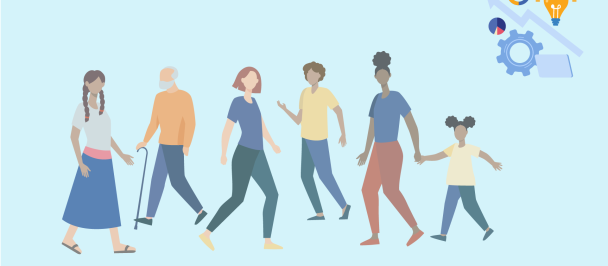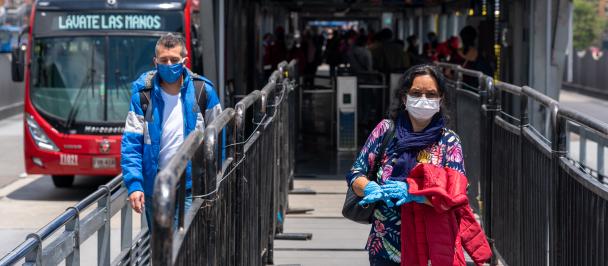Citizen’s views of COVID-19 responses and the future of governance in Latin America and the Caribbean
November 30, 2022
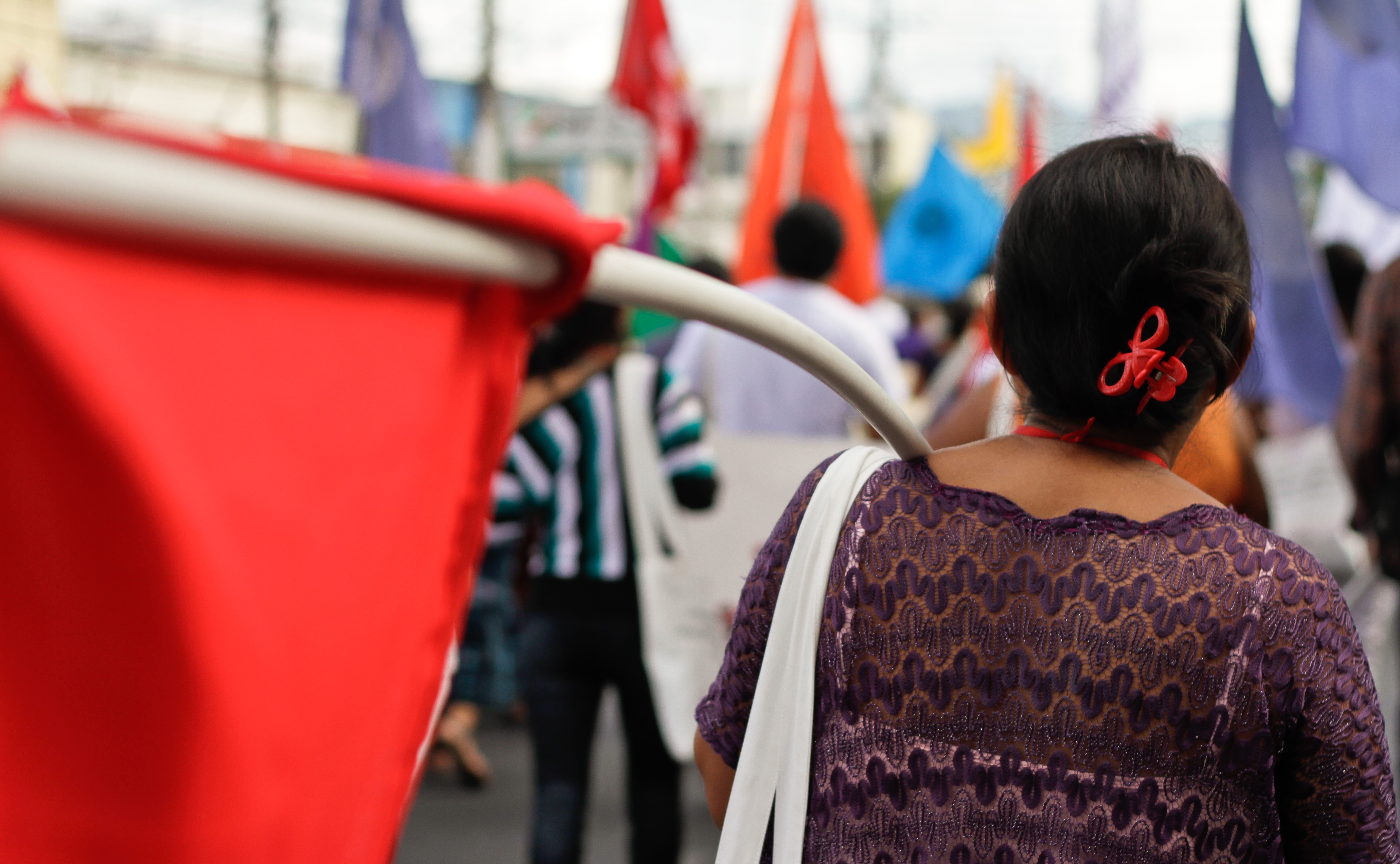
The fight against corruption emerges strongly as the number one policy priority for the Latin America and the Caribbean region
In September 2021, UNDP in Latin America and the Caribbean commissioned a survey in 13 countries to understand how the COVID-19 pandemic has influenced the views of the state and the social contract in Latin America and the Caribbean region. This analysis followed up on a similar exercise carried out in 2020 around the effectiveness and fairness of COVID-19 responses, perceived need for governance reforms, and policy priorities for COVID recovery.
Shifting views
In 2020, during the initial phase of the pandemic respondents were asking for more (not less) government control by a significant margin (see figure 1). In 2021, 48 percent of respondents expressed the need for more effective mechanisms to control government action, while 20 percent thought that the government should be able to act with fewer limitations. In 2021, - 44 percent demanded greater government accountability, against 26 percent that demanded greater freedom of action.
If we consider the entire group of countries surveyed in 2021, the difference between respondents supporting greater control and those supporting fewer limitations is even smaller (15.8 percentage points, with 42.5 percent of respondents in the first group and 26.7 percent in the second).
In 2020, 55 percent thought that their country needed more effective mechanisms to protect the rights of citizens, while 23 percent felt their country needed more effective mechanisms to limit individuals’ rights “when necessary for the common good”. In contrast, in 2021, 50 percent of the respondents supported stronger protection of individuals’ rights, compared to 30 percent who supported greater limitations. The gap between those supporting stronger protection and those approving greater limitations went from 32.3 percentage points in 2020 to 20.4 percentage points in 2021. The same trend is observed in every single country covered by both the 2020 and 2021 surveys.
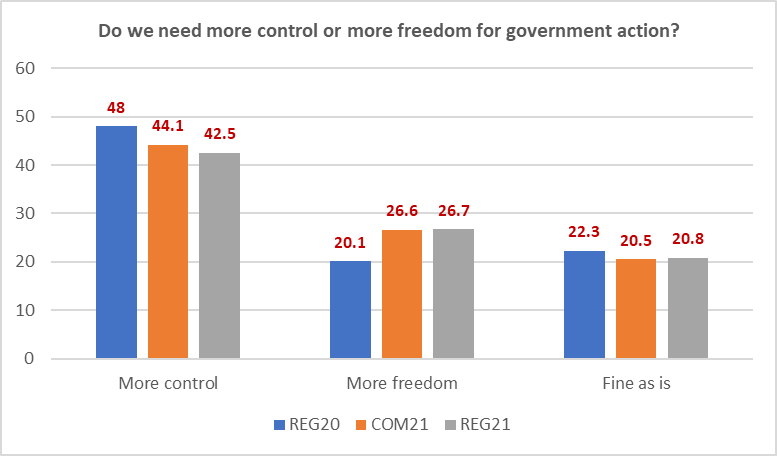
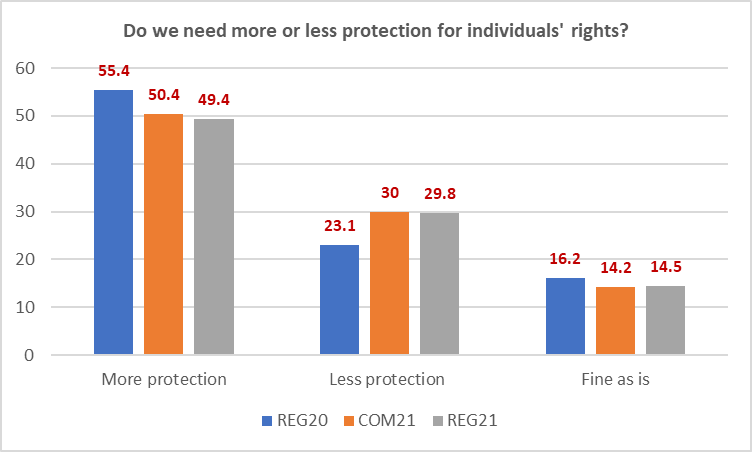
Source: Gallup 2020 and 2021. Based on the question: With which of these statements do you agree the most: “The experience of the COVID-19 pandemic has shown the following: a) in [COUNTRY] we need more effective mechanisms to limit the rights of citizens when necessary for the common good; b) in [COUNTRY] we need more effective mechanisms to protect the rights of citizens; c) the mechanisms for the protection of citizens' rights in [COUNTRY] are adequate.”
A key point emerging from the surveys of 2020 and 2021 was that the strongest demand for executive accountability and human rights protection was found in the population segments that self-identify as the “lower-middle” and “middle” classes. This a reminder of the key role that the middle class (or at least certain segments of the middle class) play as anchors of democratic resilience.


Another key finding of both the 2020 and 2021 survey data is the effect of social class on policy preferences. People self-identified as “upper” class were more likely to select “more responsible politics” as the top priority for the country, while people describing themselves as “lower” or “lower-middle” class tend to be more focused on the need for a more equitable distribution of wealth.
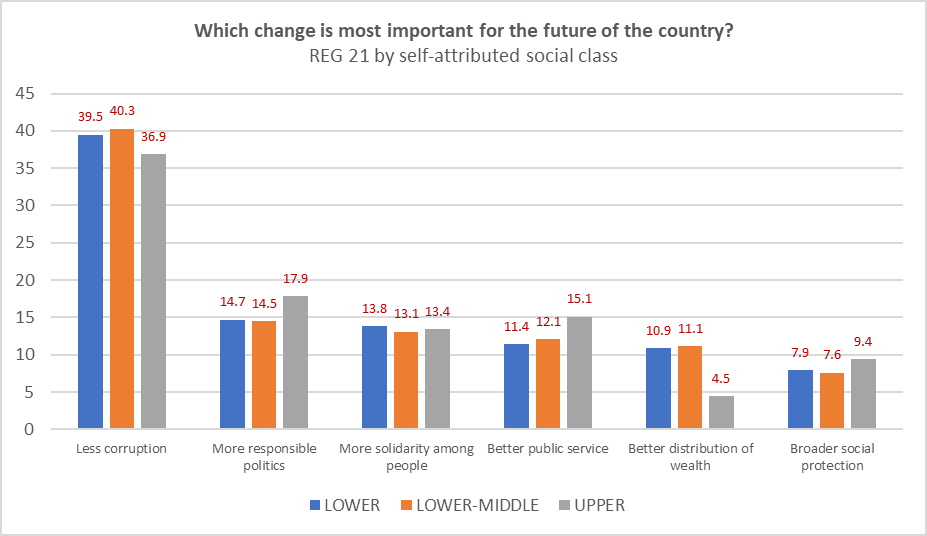
Policy priorities: corruption, corruption, and corruption
The fight against corruption emerges strongly as the number one policy priority for the citizens interviewed as part of the survey. 40 percent of respondents consider the reduction of corruption as the most important change for the future of the country, based on the lessons learned from the COVID-19 experience.
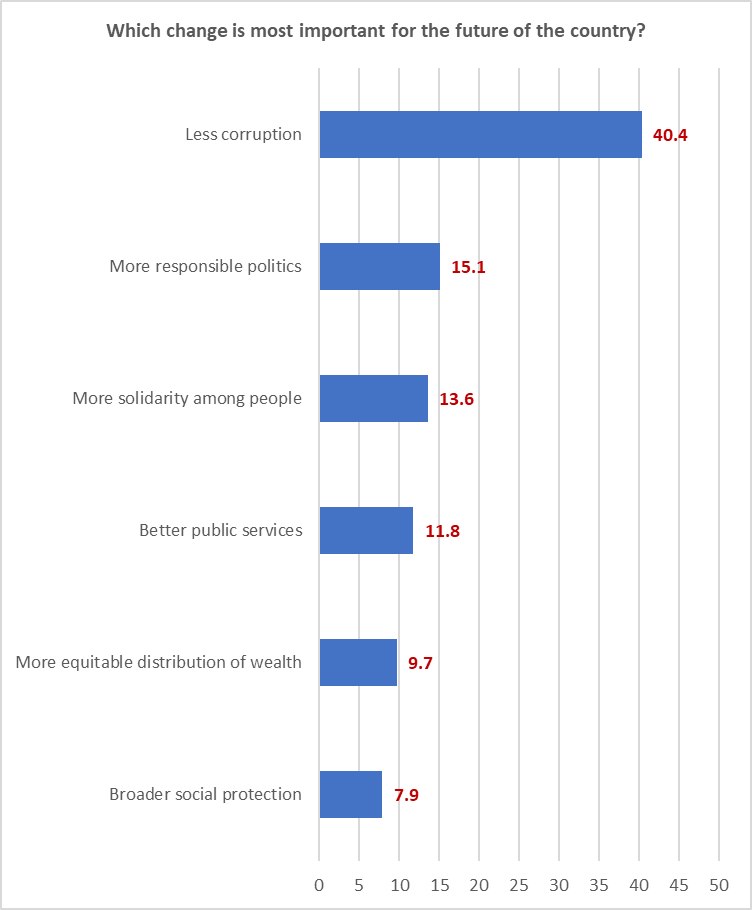
Source: Gallup 2021. Based on the question: Considering what has happened about COVID-19 in the country, which of these changes do you consider as the most important for the future of [COUNTRY]? a) less corruption; b) more solidarity among people; c) a more responsible political class; d) broader social protection; e) better public services; f) a fairer distribution of wealth
The result of the 2020 and 2021 surveys confirm point to the significant implications of the COVID-19 pandemic on the future of governance in Latin America and the Caribbean. As with all profound disruptions, this brought opportunities and challenges. On one hand, COVID-19 provided an occasion for public authorities to demonstrate a strong commitment to equity and the ability to effectively pursue a common good in the face of nationwide adversity. On the other hand, the deeply negative social and economic consequences of the pandemic risk exacerbating preexisting tensions and reinforcing entrenched feelings of injustice as well as political polarization.
It is not entirely clear yet what lessons citizens will draw from the COVID-19 experience concerning governance reform priorities. However, it is important to note, that not all possible scenarios involve a shift towards stronger democratic institutions. The fight against corruption appears to be a very promising entry point for broad-based national conversations on how to reform governance systems– with a strong human rights approach.

 Locations
Locations




